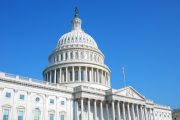
The 85-page ruling was determined in the case of the Log Cabin Republicans, a non-profit corporation, versus the United States of America and Defense Secretary Robert Gates. The plaintiffs challenged the military ban on two accounts. The first is that the ban “violates its members’ rights to substantive due process guaranteed by the Fifth Amendment to the United States Constitution.” The second asserts that the ban is a violation of “freedom of speech, association, and to petition the government, guaranteed by the First Amendment.”
Phillips wrote, “The act discriminates based on the content of the speech being regulated. It distinguishes between speech regarding sexual orientation, and inevitably, family relationships and daily activities, by and about gay and lesbian servicemembers which is banned, and speech on those subjects by and about heterosexual servicemembers, which is permitted.”
According to Phillips’ ruling, the attorneys for the Justice Department failed to prove that the policy “significantly furthers government interests in military readiness or troop cohesion, or that discharge is necessary to those interests” in the short two-week, non-jury, trial. Perhaps not surprisingly, the Obama/Holder Justice Department’s defense was poorly argued, and was devoid of witnesses, statistical evidence, or expert testimony.
In contrast, the lawyers for the Log Cabin Republicans used testimony from decorated military officers who were discharged from the military after being discovered to be homosexual. One such witness was Air Force Major Michael Almy, who served three tours in Iraq. Almy claimed that he was “outted” when another service member searched his e-mail without permission.
Phillips added that “don’t ask, don’t tell” is more harmful to the military than beneficial because it rids the military of competent personnel with “critically needed skills … including Arabic, Chinese, Farsi, or Korean language fluency; military intelligence; counterterrorism; weapons development; and medicine.”
Likewise, Phillips relied upon the military’s failure to discharge troops suspected of violating the ban until they completed their duties in Iraq and Afghanistan as evidence of the military’s recognition that the presence of homosexual military personnel had no impact on the function of the military.
R. Clarke Cooper, executive director for the Log Cabin Republicans, an organization comprised of 19,000 gay Republicans, many who served in the military, reacted to the judge’s decision. “As an American, a veteran and an Army Reserve officer, I am proud the court ruled that the arcane ‘don’t ask, don’t tell’ statute violates the Constitution.”
Servicemembers United, the nation’s largest organization of homosexual troops and veterans, celebrate the ruling. “This is an historic moment and an historic ruling for the gay military community and for the readiness and integrity of our armed forces,” remarked Servicemembers executive director Alexander Nicholson.
Not everyone shares the same sentiments on the judge’s decision, however. John Eidsmoe, author of Gays and Guns: The Case Against Homosexuals in the Military, told The New American: “I think it is entirely inappropriate for Judge Phillips to substitute her judgment for that of senior military officials. Her decision is harmful to the discipline and health of military personnel. Likewise, it will have a serious negative effect on combat bonding.”
Eidsmoe, who is a retired U.S. Air Force Lieutenant Colonel and a law professor, adds, “The Constitution makes no mention of homosexuality and I think the Founding Fathers would be utterly shocked to see how far away from the original intent of the Constitution we have moved.”
Phillips' decision adds weight to Congress’ pending legislation to repeal the ban on “don’t ask, don’t tell.” The legislation was approved in May by the House of Representatives but has been held up in the Senate. Secretary Gates believes Congress should not make a decision regarding the legislation until the Pentagon completes a study on the best way to transition homosexual personnel into the military.
According to CNN, “The next step is expected to be for the government to ask for a temporary injunction to prevent the ruling from going into immediate effect, pending further appeals. The government at some point in the next few weeks or months would then file a petition with the 9th Circuit U.S. Court of Appeals, which is based in San Francisco, for a hearing. If the government were to lose, its next step would be to the Supreme Court.”
Another option is that the Justice Department has seven days to appeal the decision, but with both President Barack Obama and Joint Chiefs of Staff Chairman Admiral Michael Mullen supporting a repeal of the “don’t ask, don’t tell” policy, both the appeal and injunction seem unlikely.
The Justice Department has not commented on the ruling, but trial government attorney Paul Freeborne contends that the decision to lift the ban should be made by the Congress, not the judicial branch




